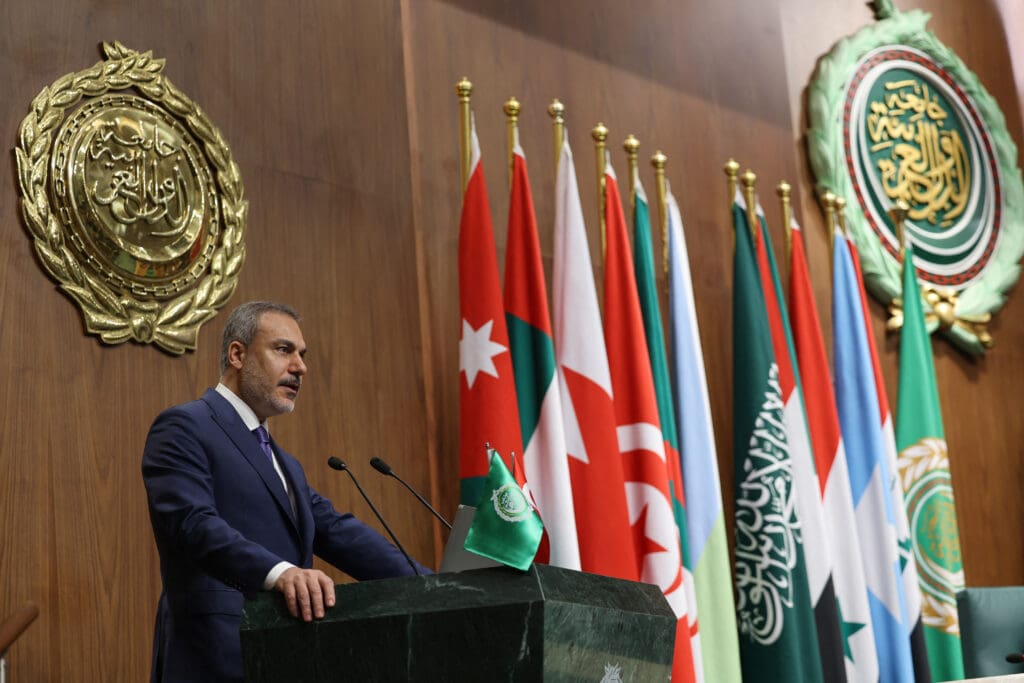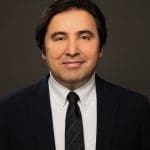At the most recent meeting of the League of Arab States (LAS) in Cairo, Turkish Foreign Minister Hakan Fidan was in attendance, marking the first time Türkiye has been represented at the summit in 13 years. In his address, Fidan offered pointed remarks on the war on Gaza and the need for unity among Arab League members and Türkiye. During Fidan’s speech, the Syrian foreign minister, Faisal Makdad, made headlines by walking out of the summit hall. In this interview, Middle East Council Nonresident Senior Fellow Galip Dalay offers his insights on Türkiye’s presence at the Arab League Summit and the words of the Turkish foreign minister.
1. What is the significance of Türkiye attending the Arab League meeting after a 12-year absence?
Fidan’s attendance underscores the normalization process between Türkiye and the Arab Gulf states, which has been underway for a few years now. Key member states, such as Saudi Arabia and Egypt, were instrumental in Türkiye’s presence there. So, it shows the extent of the rapprochement given that not too long ago relations were quite strained. The fact that Egyptian President Abdel-Fattah el-Sisi recently visited Ankara further confirms this point. Taken together, they demonstrate that the Arab Spring-era chapter in Türkiye’s relations with the Arab Gulf states, which was tense due to Ankara’s strong support for the Arab Spring and close ties with Muslim Brotherhood-affiliated parties throughout the region, has come to an end. Ankara’s current policy resembles its pre-Arab Spring one, when it prioritized maintaining good relations with regional governing elites and regimes, while avoiding regional fault lines. At the moment, Ankara prioritizes cultivating deeper economic ties, among other things. In his speech, Fidan said that the Turkish-Arab Economic Forum will hold its 15th session in Istanbul in October, while expressing his desire to revitalize the mechanisms established before the Arab Spring that were aimed at deepening relations. These include the Turkish-Arab Cooperation Forum and the Turkish-Arab Parliamentarian Dialogue.
2. What does Fidan attending the LAS mean for Gaza/Palestine?
Since October 7 of last year, Türkiye has adopted strong language to describe what Israel is doing in Gaza, including calling it a genocide; officially engaging in a trade boycott of the country; supporting the case at the International Court of Justice against Israel; serving as a member of the OIC-LAS joint delegation tasked with international diplomacy on the issue; trying to play a role in intra-Palestinian dialogue; and providing significant humanitarian aid to people in Gaza. Foreign Minister Fidan also visited the Rafah border crossing last month to raise more international awareness of what is happening there. However, at the regional political level, Ankara has tended to support the Arab states and their diplomatic initiatives. Instead of competing with or overshadowing their role, Ankara adopted a supportive stance to that of the Arab states—not least that of Egypt and Qatar—and this policy is set to continue. This is why, instead of undermining Türkiye’s relations with the Arab states, the war on Gaza has underpinned the normalization efforts with them. At the LAS meeting, Fidan called on the Arab and Muslim states to close ranks on the Palestinian issue. He made a similar call on the UN. Türkiye is obviously dismayed by the strong Western support for Israel, and mobilizing regional, Muslim and Global South states is meant to counterbalance the West’s approach. That forms the core of Turkish policy.
3. What can we make of the mixed signals from Syria given that it had to approve Fidan’s attendance but walked out of his speech?
Syria is in no position to affect Türkiye’s relations with the Arab League. Syria just returned to the organization itself after more than a decade of banishment—thanks to Riyadh. Therefore, the Syrian foreign minister’s decision to leave the room while his Turkish counterpart was speaking was about symbolism and Syrian domestic politics. In reality, Ankara is supportive of Syria’s return to the Arab fold, as it is one way to reduce Iranian influence over the country. Moreover, Faisal Mekdad’s behavior is unlikely to have an impact on the gradual process of the Turkish-Syrian rapprochement, for which Russia has situated itself as a gatekeeper. This process is informed by its own dynamics and is inherently difficult given the stark differences between each side’s priorities and expectations regarding this process. To name a few, Türkiye wants to prevent the Kurdish-led enclave in Syria’s northeast from gaining constitutional status and international acceptance; it wants the partial return of Syrian refugees currently residing in Türkiye; and it wants to get some symbolic concessions for its allied Syrian opposition groups. The Assad regime has shown no interest in accommodating the latter two points, in particular. And for itself, Damascus insists on the removal of Turkish forces from Syria, though it has recently signaled some flexibility on this point.


